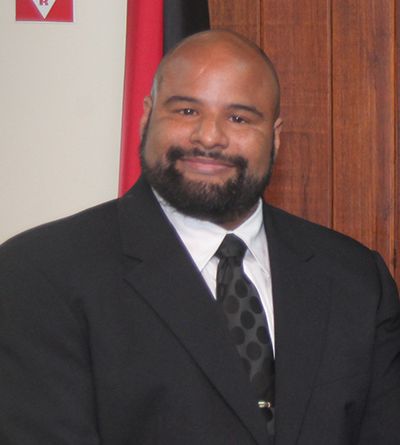(Trinidad Guardian) One of the youngest judges sitting in the Supreme Court has been charged with driving under the influence and will appear in before a Port-of-Spain Magistrates Court today.
Officers of the St Clair Police Station arrested and charged High Court Judge Kevin Ramcharan at around 11 pm on Saturday for driving under the influence of alcohol after his red Land Rover SUV crashed into another vehicle at Saddle Road, Maraval.
The judge was administered a breathalyser test and found to be over the legal limit, police said.
He was granted bail in the sum of $15,000 at the St Clair Police Station yesterday morning by Justice of the Peace Oliver Boodhu and will appear in the Sixth Magistrates Court today along with other drivers charged for driving under the influence. The 43-yearold judge took to Twitter after the incident posting “Have to take stock of my life and the foolishness I am doing.”
It is not the first time the judge has been the centre of public attention. Shortly after his appointment, in April 2017, he was highlighted by another daily newspaper for social media postings which made comments about women’s bodies and pornography.
The judge has been involved in some recent high-profile legal matters, including the challenge by the Fishermen and Friends of the Sea against the EMA over the issuance of the Certificate of Environmental Clearance in the Aripo Savannas for a highway project.
He was also the judge hearing a matter involving CLICO.
Legal sources told Guardian Media that the Judicial and Legal Services Commission will only get involved only after the judge appears in court to answer the charge of drunk driving. Chief Justice Ivor Archie, who appointed the judge last April, is out of the country and not due back until the end of the month.

The judge was appointed along with the then former Chief Magistrate Marcia Ayers-Caesar and former Magistrate Avason Quinlan- Williams. Ayers-Caesar subsequently resigned in the midst of a controversy over leaving 53 cases unfinished in the Magistrates Court. That matter is now before the courts after Ayres-Caesar claimed she was coerced to resign.
The appointments drew criticism from attorneys, including the Law Association which noted that the relative secrecy in which appointments to the Judiciary are currently made has the potential to encourage suspicion and amplify disquiet especially in the darkness of a vacuum of information.




